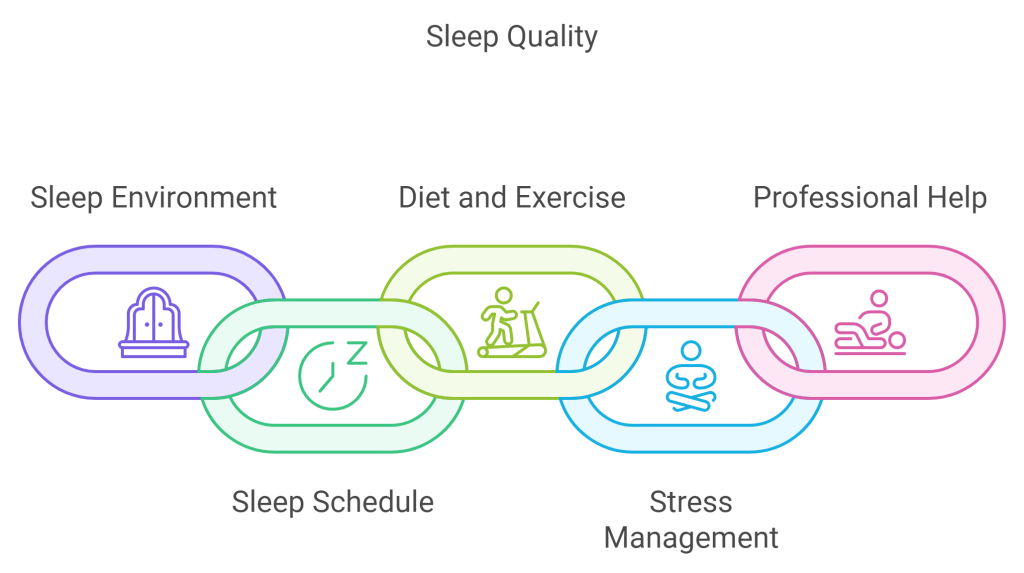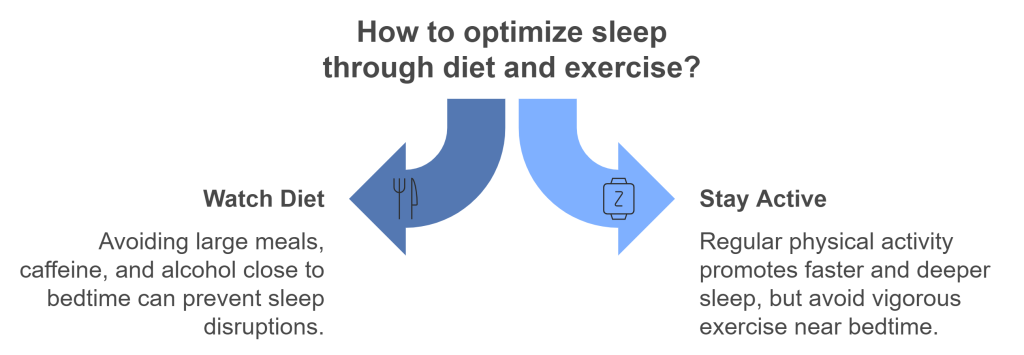No products in the cart.
No products in the cart.
😴 Sleep is a vital component of our overall health and well-being, yet many people struggle to achieve the restful slumber they need. This document outlines practical strategies and tips to improve sleep quality, helping you wake up feeling refreshed and energized. By implementing these techniques, you can create a conducive environment for sleep and establish habits that promote restorative rest.


Consider consulting a healthcare professional if you’ve tried these strategies and still struggle with sleep. They can help identify any underlying issues or recommend treatments to improve your sleep quality.
By following these guidelines, you can take significant steps toward achieving better sleep. Remember that improving sleep habits takes time and consistency, so be patient with yourself as you work towards a more restful night.
If you need any further information or assistance with this article, don’t hesitate to Contact Us
Karen Blake
BAHN-NLP
TFT-DX



